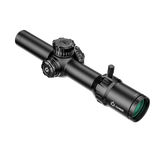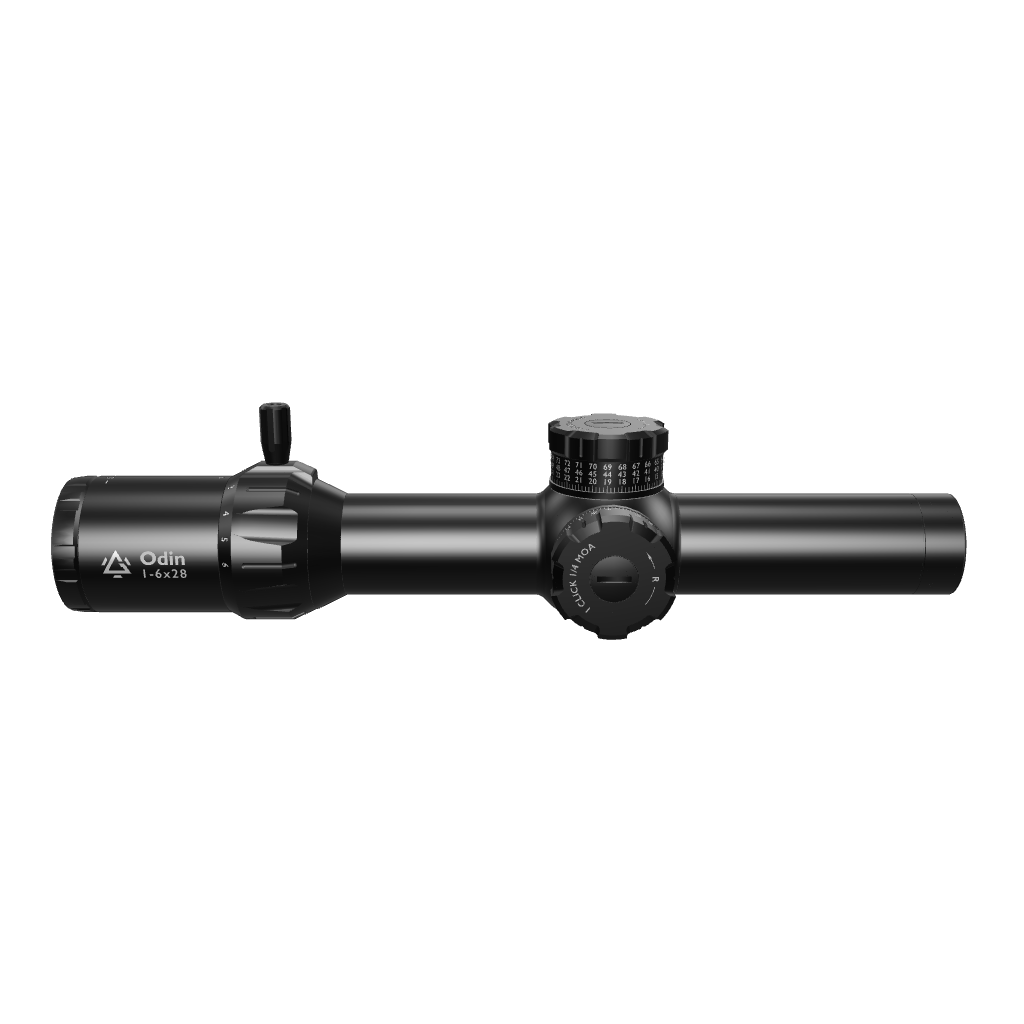Scope Eye Relief Distance Chart
Usually, the amount of eye relief you need for a scope depends on the type of scope and your shooting preferences.
Rifle scope generally ranges from 2.5 inches on tactical or AR scopes to 20.0 inches in long-range pistol scopes. Standard hunting scopes and LPVOs have shorter eye relief (3.0-4.0 inches), while scout scopes have longer eye relief ( 8.0-12.0 inches).
This scope eye relief chart is meant as a guide if you are choosing a scope for a high recoil rifle, or mounting a scope on an irregular platform, fitting your scope to your body type, or comparing eye relief in different types of scopes.
Scope Eye Relief Chart
| Scope Type | Typical Eye Relief | Use Case / Notes |
| Standard Hunting Scope | 3.0" – 4.0" | Most common; balances comfort and recoil protection |
| Tactical / AR Scopes | 2.5" – 4.0" | Slightly shorter eye relief; often used with variable power LPVOs |
| High Recoil Rifle Scope | 4.0" – 5.0"+ | Necessary for magnum calibers and heavy-recoil rifles |
| Scout Scope | 8.0" – 12.0" | Long eye relief; mounted forward on the rifle barrel for situational awareness |
| Pistol Scope | 10.0" – 20.0"+ | Very long eye relief to account for arm’s length shooting stance |
| Red Dot Sight (non-magnified) | Unlimited | No eye relief required — can be used with both eyes open |
| LPVO (Low Power Variable Optic) | 3.0" – 4.0" | Common in 1-4x, 1-6x, or 1-8x scopes; short but usable on AR-style rifles |
What Is Eye Relief?
Most shooters know intuitively what eye relief is, even if they cannot clearly define it. Eye relief can be defined as the ideal distance between your eye and the rear lens of the rifle scope at which the image through the scope is clearest, fullest, with no dark shadows, blackouts, or any other type of interference.
Eye Relief For Standard Hunting Scopes
When it comes to eye relief, hunting scopes are practically the middle ground: they offer enough eye relief distance to protect your face from recoil but still provide a decent field of view and image brightness.
You can expect eye relief on a hunting scope to range from 3.0 to 4.0 inches. which balances the field of view, comfort, and safety during recoil.
Related: Tactical scopes under $1000 in 2025
Eye Relief For AR/Tactical Scopes
The eye relief for AR/Tactical Scopes is typically about 2.5" to 4.0", which is shorter than hunting scopes, but ideal for supporting rapid target acquisition, especially at low magnification.
Tactical scopes are built for speed, versatility, and tight setups. The short eye relief here helps you stay fast on target, especially when moving or switching targets under pressure.
Eye relief is definitely one of the most crucial factors if you are looking for the best optics for AR-15
Eye Relief for LPVOs
LPVOs typically have fixed eye relief like traditional scopes, even though they zoom from 1x up to 4x, 6x, 8x, or more. LPVOs are, in fact, very similar to traditional scopes. It has been said that an LPVO is a tactical scope with zoom.
On some LPVOs, eye relief can slightly change as magnification increases-but that is not the case for most.
Even recently released models like the LPVO Odin series have fixed eye relief.
Related: How to Choose the best LPVO for your Rifle
Eye Relief for High Recoil Scopes
Hard-kicking rifles like .300 Win Mag, .338 Lapua, or 12-gauge slugs need extra-long eye relief to protect your face from scope bite.
This explains why high-recoil scopes have longer eye relief, typically ranging from 4.0" to 5.0" and above.

Eye Relief for Scout Scopes
For a scout scope, eye relief generally can go up to 14"+, but is typically about 8.0" to 12.0".
Scout scopes have the longest eye relief of any rifle scope because they need to be mounted forward of the receiver in order to allow for better peripheral vision and target tracking.
Eye Relief for Pistol Scopes
Eye relief for pistol scopes generally goes from 10.0" to 20.0"+, which is significantly longer than hunting scope eye relief, and slightly longer than high recoil scope.
Pistol scopes are designed to be used with arms fully extended, just like how you naturally shoot a handgun; hence, they require ultra-long eye relief.
Eye Relief for Red Dots
There is no eye relief on a red dot because red dot sights do not require a specific distance between your eye and the optic. You can mount them anywhere on your rail and still get a full, usable sight picture.
Red dots are designed for fast target acquisition and maximum flexibility, especially at close to mid-range.
The unlimited eye relief allows for rapid shooting from unconventional positions — whether you're on the move, behind cover, or using a compact weapon platform.

Conclusion: Eye Relief Is Everything
If you set the proper eye relief an important step on the path to becoming an accurate shooter. Proper eye relief is the foundation to crystal-clear, pinpoint-accurate performance every time you step onto the range, into the shoot house, or out in the field.
You might also be interested in getting started in long-range shooting, and these tips on mounting your LPVO, as well as other practical LPVO safety tips for all shooters.







